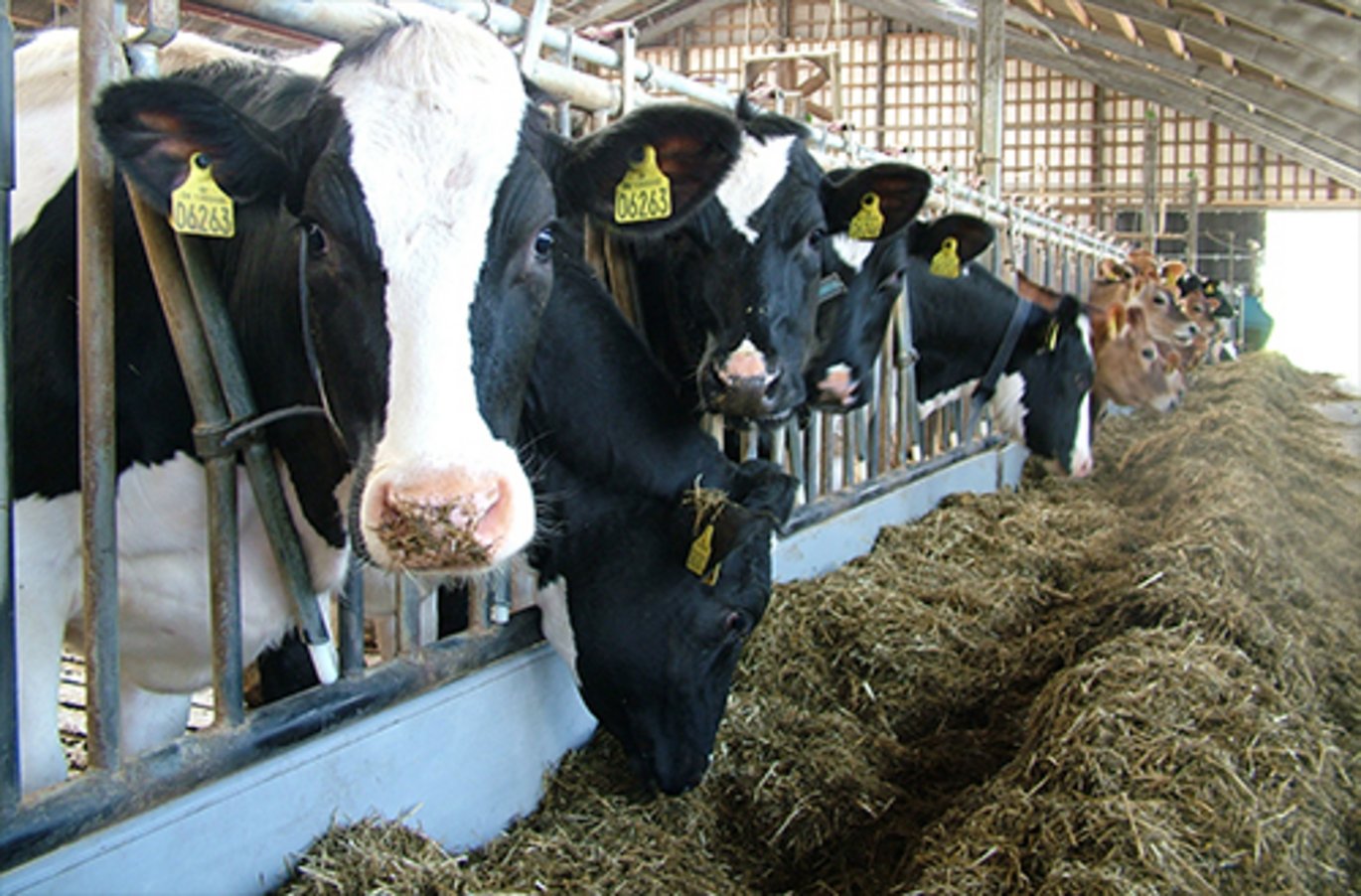New tools will contribute to healthier cows, healthier economy and less climate impact
Aarhus University leads a new GUDP project (KlimaKS) which will contribute with new tools to help the farmer in his efforts to prevent health problems in dairy cows. This will be beneficial to the cows’ welfare, the farmer’s economy and not least the climate.

Health problems in dairy cows, such as mastitis, metabolic disorders and hoof disorders, naturally affects animal health and welfare, but it also increases the climate impact from the milk production because the efficiency and the cows’ longevity are reduced. Department of Animal Science, Aarhus University, leads a new big collaborative project aiming at helping the farmer put early efforts on the most efficient disease preventing solutions and practices when it comes to health and economy.
Loss in relation to diseases is underestimated
The health problems in dairy cows mentioned can be prevented with various measures; however, research shows that this is done less than optimal. Among others, this is because the occurrence of diseases, and the losses connected to this, is underestimated – in some cases by up to 50%. This means that the farmer does not consider the preventive measures economically attractive and are thus not initiated. Other causes for preventive measures not being used optimally is that the farmer does not know the total costs of disease prevention and treatment, and, furthermore, that changes in disease occurrence are discovered so late that focus is oriented towards treatment instead of prevention. Finally, it may be due to the recommendations of prevention being too general and not being based on the individual farmer’s specific situation.
Two new tools on their way
“In order to motivate the farmer to increase focus on disease prevention, we therefore want to develop two new tools in the project that can help the farmer with how to prevent health problems by using information based on the herd’s own data. Opposite previous tools, this will give the farmer a view about whether certain measures for disease prevention is profitable”, says leader of the project Professor Søren Østergaard.
The tools concerned are:
- A new system for herd-specific disease surveillance and early prevention (Surveil).
- A new decision support system for prioritising preventive measures considering climate and economy (KlimaKS-dahsboard).
Based on the farmer’s own data, conditions and preferences, the two new tools must be able to monitor the cows’ metabolic health in the first part of lactation. Furthermore, they are to identify causalities and consequences and thus provide the farmer with herd-specific decision support for prevention and treatment of health problems, if any (see table).
Better use of resources with the new toolsAccording to Søren Østergaard, the use of the two tools will result in the farmer using his resources more efficiently, which will contribute to better health, climate and economy: “We expect that the two new tools will be a significant contribution to the green transition of agriculture; partly because it increases focus on health monitoring and prevention of health problems, and partly because we quantify economy and the climate effect from disease and disease prevention in the individual herd. The reduced climate impact derives especially via more efficient cows who live longer. This will increase the motivation for more prevention and at the same time contribute to lower use of antibiotics and improved quality of life at work”, concludes Søren Østergaard. |
Further information | |
We do our best to make sure that all our articles live up to Universities Denmark’s principles of good research communication. Therefore, the article is supplied with the following information: | |
Funding | The project is funded by the Green Development and Demonstrations Programme (GUDP) under the Ministry of Food, Agriculture and Fisheries of Denmark. Project period: 01-01-2022 to 31-12-2025. |
Partners | Aarhus University, Department of Animal Science Dyrlæger & Ko SimHerd A/S University of Copenhagen, Department of Food and Resource economics ARLA |
Contact | Professor Søren Østergaard, Department of Animal Science, Aarhus University E-mail: soren.ostergaard@anis.au.dk |
